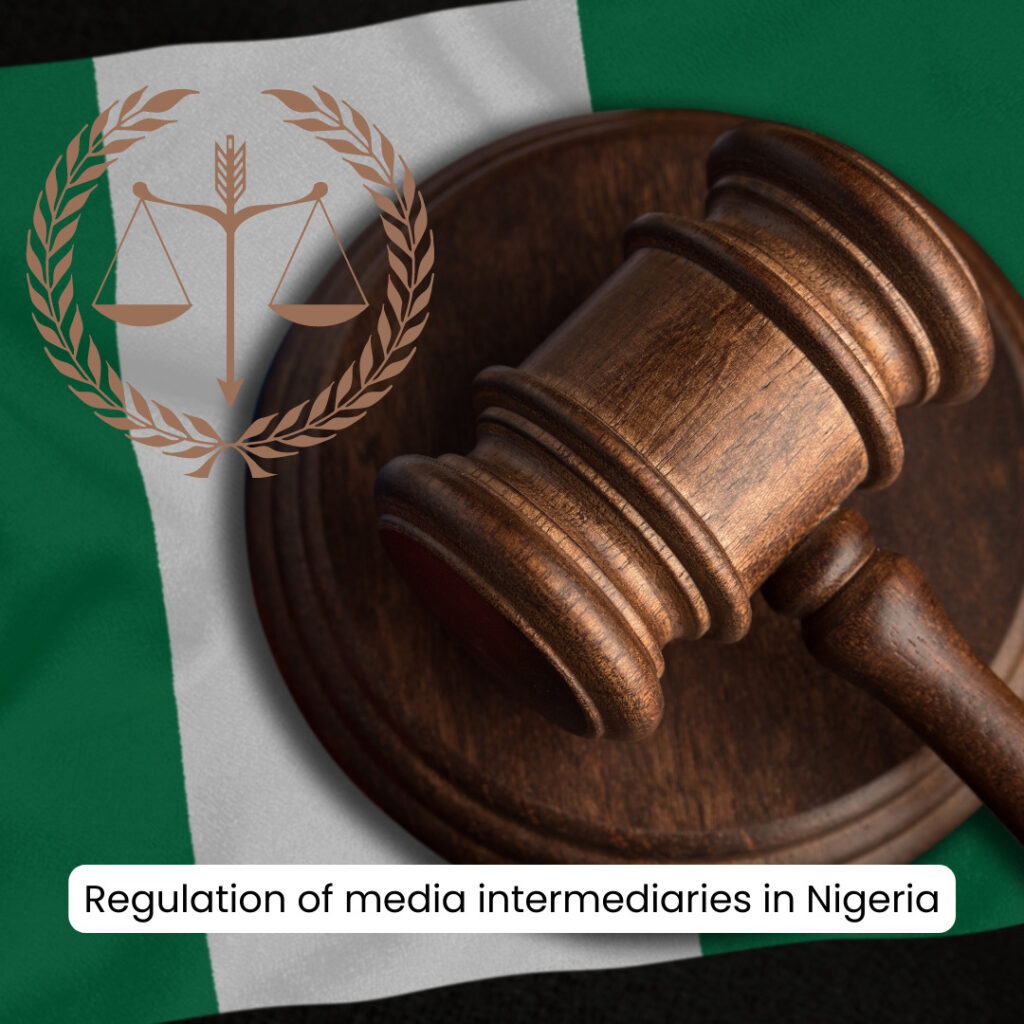Regulation of Media Intermediaries in Nigeria
In the digital age, media intermediaries play a central role in shaping the way information is accessed, shared, and consumed. These intermediaries, which include social media platforms, search engines, and content-sharing websites, have become vital conduits for communication and content distribution. In Nigeria, a country with a growing digital landscape and a diverse media ecosystem, the regulation of media intermediaries presents a complex challenge. Striking a balance between facilitating online innovation and ensuring responsible content dissemination is crucial. In this article, we delve into the world of media intermediaries and their regulation in Nigeria, exploring their significance, key considerations, challenges, and implications for both users and the digital environment.
The Role of Media Intermediaries
Media intermediaries serve as gateways through which users access and share digital content. These platforms enable individuals to communicate, express themselves, and interact with information on a global scale. While they empower users with unprecedented opportunities, they also introduce challenges related to content moderation, misinformation, and user privacy.
Significance of Regulation
Regulating media intermediaries is essential for several reasons:
- Content Moderation: Regulation ensures that content disseminated through intermediaries adheres to ethical and legal standards, preventing the spread of harmful or illegal material.
- Misinformation: As sources of news and information, intermediaries need measures to curb the dissemination of fake news and disinformation, which can have far-reaching consequences.
- User Privacy: Regulation protects user privacy, preventing the unauthorized collection and misuse of personal data.
- Market Competition: Regulation can promote fair competition among intermediaries, preventing monopolistic practices that could stifle innovation and user choice.

Key Considerations in Nigeria
Regulating media intermediaries in Nigeria involves several key considerations:
- Freedom of Expression: Striking a balance between curbing harmful content and upholding freedom of expression is a nuanced challenge that requires careful legal and ethical considerations.
- Local Context: Consideration of Nigeria’s cultural diversity, languages, and societal norms is crucial in designing effective regulations that resonate with local users.
- Innovation: Encouraging innovation and digital entrepreneurship while ensuring responsible content management requires a forward-thinking approach to regulation.
- Data Protection: Ensuring compliance with data protection laws is essential to safeguard users’ personal information and privacy rights.
Challenges and Opportunities
Regulation of media intermediaries in Nigeria presents both challenges and opportunities:
- Overregulation: Overregulation could stifle digital innovation and limit the potential of media intermediaries to foster economic growth and connectivity.
- Content Moderation: Striking the right balance between moderating harmful content and avoiding undue censorship is a complex challenge.
- Global Impact: Many media intermediaries operate globally, posing challenges for national-level regulation and enforcement.
- Transparency and Accountability: Ensuring transparency in content moderation and decision-making processes by intermediaries is crucial for building user trust.
Shaping the Future
The future of regulating media intermediaries in Nigeria holds promise:
- Collaboration: Collaborative efforts between intermediaries, government agencies, civil society, and users can lead to more effective and balanced regulation.
- Digital Literacy: Promoting digital literacy and media education empowers users to critically engage with digital content and discern credible sources.
- Self-Regulation: Encouraging media intermediaries to adopt transparent and accountable self-regulation mechanisms can enhance responsible content management.
- Adaptive Regulation: Regulations should be flexible and adaptable to evolving digital landscapes and technological advancements.
Conclusion
Regulating media intermediaries in Nigeria is a multifaceted challenge that requires a comprehensive approach balancing innovation, freedom of expression, and responsible content dissemination. By fostering collaboration, promoting digital literacy, and embracing forward-thinking regulation, Nigeria can create a digital environment that empowers users, protects their rights, and supports a thriving digital economy. As Nigeria’s digital landscape continues to evolve, a holistic approach to media intermediary regulation will contribute to a digital future that is inclusive, innovative, and respectful of users’ needs and rights.
